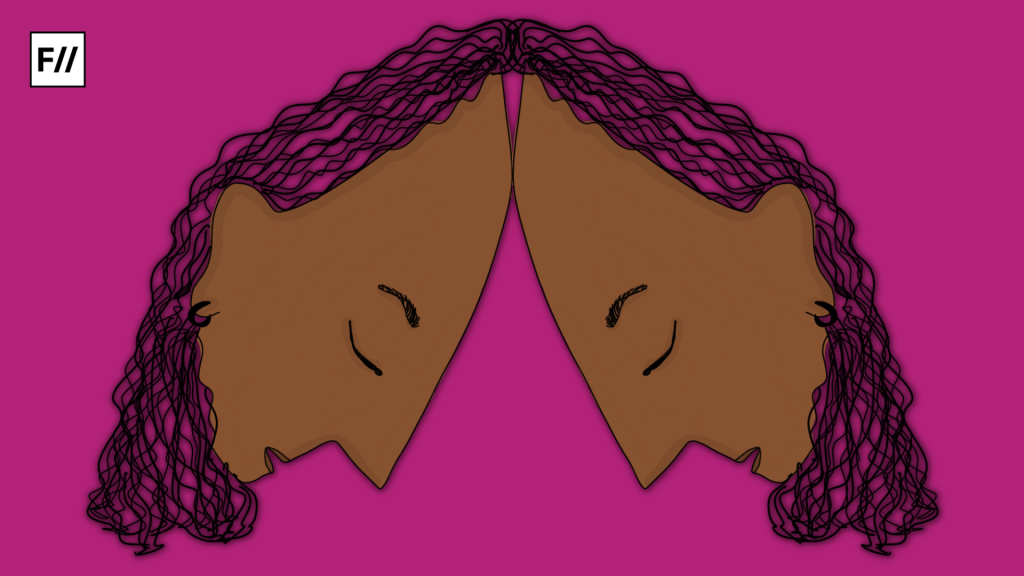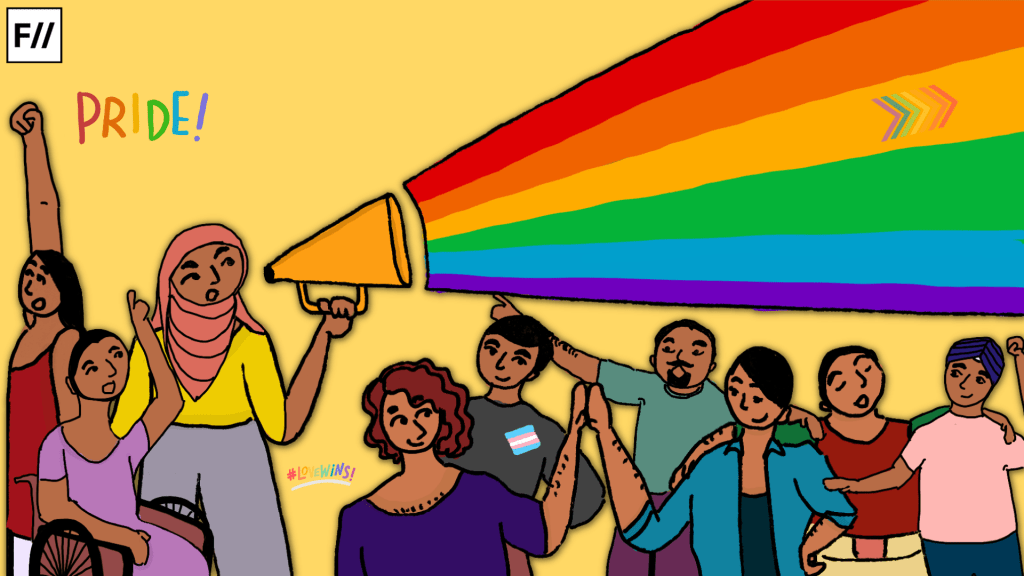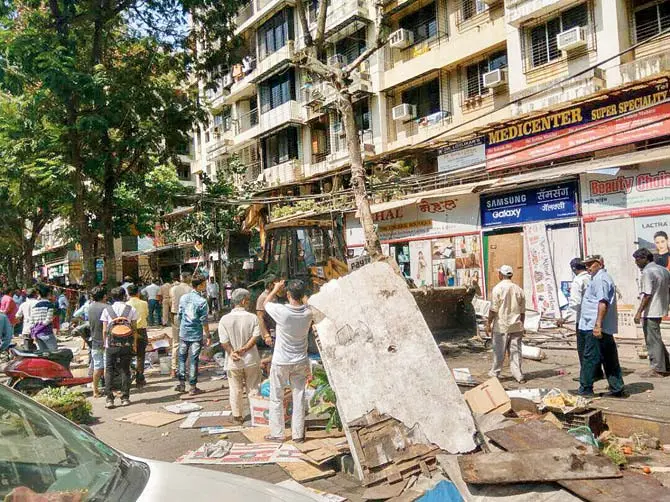Individuals identifying as non-binary have a dynamic sense of homeliness. House as a space is isolating and hostile for non-binary students. ‘Coming out to parents is an extremely challenging task. My parents especially my dad would not accept my identity,’ said X*, a second-year student from St Xavier’s College Kolkata who identifies as non-binary and pansexual. ‘In our natal families there is barely any scope for self-expression,’ commented another student A* who is also a second-year student at St Xavier’s College Kolkata, who also identifies as pansexual.
The compulsion to dress according to gender norms, infringement of privacy, attempts to interfere in individual relationships, curtailing movement, attempts to control finances, and physical harassment constitute the spectrum of abuse faced at home, agreed on both. They have to resort to a multitude of physical spaces to be together as a community and live their lives autonomously. Home therefore has to be continually created and recreated.
Being within a group enables the queer community to harbour a sense of bonding, acceptance and security because within a group every individual member has the opportunity to effectively utilise all the resources they are capable of harnessing to improve the lives of their group members. The form of sociality usually existing among queer individuals embodies values of shared humanity and compassion.
A non-binary lesbian former student activist from Jadavpur University described in detail the deep bonds of reciprocity among queer individuals. They said ‘Cis-het people don’t encounter the normative structures of gender oppression as they are the ones complicit in perpetuating it. The state of unfreedom remains out of their ontological spheres. Queer individuals on the other hand face gender oppression at every walk of life. Therefore they have more clarity on how these power structures operate and how they should be resisted. They are conscious about their lived experience and hence actively seek out spaces and relationships where the extent of freedom available is maximised. This is why you would see queer students sharing one another’s problems, genuinely caring for each other and to a greater degree of mutualism.’

Kolkata as a city is extremely significant in the movement of the assertion of queer people. It was in Kolkata that the Friendship Walk of 2nd July 1999 took place which became the first pride march to be held in India. The march brought the queer community in Kolkata into the centre stage of public discourse. Gradually the queer community effectively utilised both print and digital media to increase its visibility and assert queer rights. The margin of awareness on queer issues is much greater than in other places in Bengal. Places like Minto Park, Nandan area, Dumdum are places relatively safe for queer people. Avenues for cultural and artistic expression for the entire community are also available.
Last year the Goethe Institut, Max Mueller Bhavan Kolkata organised a film festival ‘Dialogues,’ on 17th November 2023 in collaboration with Sappho For Equality which also organised the Queer-Trans Rojgaar Mela in July 2024. It is within this built environment of activism, creativity and a network of mutual support that multiple queer students in college campuses across Kolkata have utilised the resources available to them queer students are reclaiming and constructing their College spaces as centres of collective self-expression.
College campuses in cities like Kolkata are therefore spaces where such groups can be formed with relative ease. There are certain defining characteristics of safe spaces that these groups within college campuses seek to achieve. “Queer space spaces are characterised by the following: (1) underscoring resistance and subversion as significant capacities required in the queer space’s construction; (2) formulating a space for the community and its culture; (3) constructing subjective boundaries that are known to the members of the marginalised group, but do not have to be known to outsiders; and finally (4) establishing a new organization of temporality, which creates continuous subjective gender experiences and performances rather than producing dissociation.”
The individuals in this report are amongst those several queer people who have creatively made and re-made college spaces like the green benches at St Xavier’s College usually seen as cis-het spaces, into spaces of interbeing. These areas become zones of shared bonding, care, support and love among queer individuals.

‘We attempt to utilise most of the time we have by being together. Breaks between classes constitute parts of those rare moments wherein we can be together,’ said X. The space extends to the digital media and the internet as well. Social media like Instagram has helped these students to connect with other fellow queer individuals both inside and outside the institution. According to P* a student who identifies as lesbian, ‘I had the chance of developing strong connections with the broader queer community within the college through social media. These connections strengthened us and instilled confidence in ourselves and asserting our identities.’ However, not everyone is satisfied with social media. X pointed out that ‘Both virtual and physical spaces are essential. The ubiquity of social media does not evade the innate necessity for human contact.’
‘Spaces develop gradually and they take time to develop. You need to find a conducive space for yourself. I was initially hesitant to reveal my identity. I remained in the closet for a long time. Gradually my friends both queer and non-queer made me feel comfortable and my queer seniors made me feel especially my queer seniors helped me a lot,’ said Z* a second-year undergraduate student from Presidency University who identifies as cisgender gay. ‘Our university campus is very inclusive and tolerant of diversities and we don’t usually face any hostility and homophobia within the campus.’
‘Self-expression in public is barely curtailed and we can hang out with whomever we like including our cis-het friends. Here in this university, the progressive ethos of the University sensitizes students about LGBTQIA+ issues. My professors refer to me with my preferred name. We are usually comfortable with cis-het people,’ said Y*, another student from the same institution who identifies as non-binary asexual. ‘Our university campus is indeed a social space. We do not just pursue academic work here. We spend long periods of time on the campus and thus our bonds are strengthened.’
Being within a group also protects the queer students from systematised homophobia. ‘Our classmates are not overtly hostile but they do say a lot of things behind us. They would never openly abuse us for they know we constitute a strong collective. If they try to misbehave they will face resistance,’ said both X and A. Collective living provides the queer individuals strength to fight everyday hostilities and assert their political rights through pride marches and demonstrations. These marches reinforce their capacity to fight oppression and reclaim their political subjectivity.
Despite this microaggressions prevail. ‘When I first enrolled in this institution my seniors made me stand up and asked my name. I told them what was my preferred name. They mocked me by saying that your name, name assigned at birth is really nice. Why do you want to change it?‘ said Y. Strong cohesiveness within friend groups of queer people enables them to complement one another’s resources and skills to ensure mutual well-being for one another.
These groups are social spheres where new aesthetics of love, bonding collective survival and thriving are newly defined. ‘Our collective survival amidst severe material and symbolic violence is the best metaphor for our resistance.’ This wonderful phrase from the queer activist from Jadavpur conveys the true essence of those lives covered in the report.
*names have been changed to protect the identity
About the author(s)
Rohin Sarkar (preferred pronouns: he/him) is an eighteen year old teenager obsessed with critical theory, Anarchist studies and Ambedkarite literature. His passion other than academics include poetry by Faiz Ahmed Faiz and Habib Jalib along with Anarchist punk by David Rovics. He also enjoys Oxford style and British Parliamentary debating because it enables him to speak his mind without fear of being censured. When not studying or debating he is chatting on politics with his friends either on WhatsApp or in the college premises.






